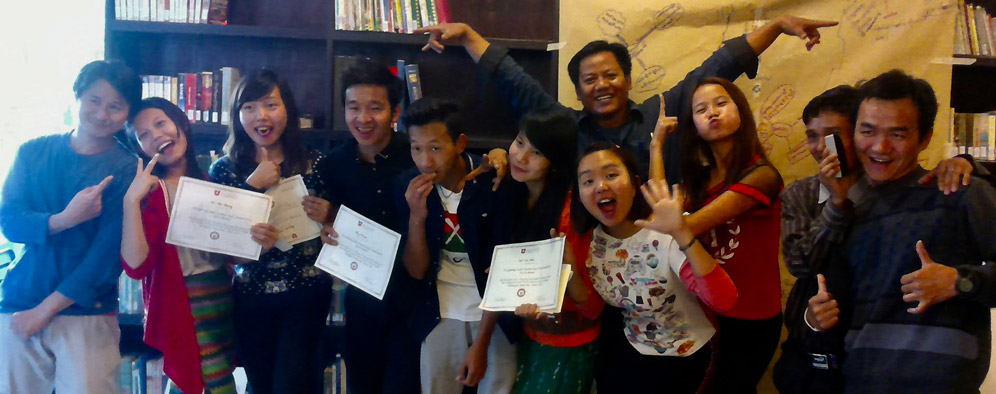By Brooke Adams, communications specialist, University Marketing & Communications
As the country of Myanmar transforms itself after five decades of military rule, the University of Utah is stepping up to fill a critical need for social workers.
The U’s College of Social Work and Asia Center — in partnership with St. Aloysius Gonzaga Institute of Higher Studies — are providing an online, social work certificate program to students in Myanmar (aka Burma). It’s the first phase in a long-term plan to help the institute develop an interdisciplinary bachelor’s degree in education and social work.
There is no social work degree program in the country at present, said Rosemarie Hunter, an associate professor in the College of Social Work. The small number of social workers providing services in Myanmar received training outside the country.
The social work certificate program “is the first program of its kind in Myanmar,” she said. “It was really a closed country. Even higher education was closed down. They are rebuilding education one step at a time.”
There is a huge need for social workers. The United Nations has projected that Myanmar will need 6,000 social workers by 2020, Hunter said.
Father Paul Dass, institute director, is visiting Utah this month to meet with U and community partners. The mission of St. Aloysius Gonzaga Institute is to serve the poor through education. It has operated in Myanmar since 1998, collaborating with Ateneo de Davao University of the Philippines, to provide language programs and teacher training. The U joined the collaboration in 2014.
Hunter said the U connected with the institute through the Bridging Borders program, an interdisciplinary partnership between the Asia Center, the College of Social Work and the Division of Occupational Therapy. The program brings U students to refugee camps on the Thailand-Myanmar border each summer to engage in fieldwork and trainings.
At present, the institute provides a three-year teacher training program; the U offers a fourth-year concentration in social work. Approximately 12 students have completed the social work certificate to date. The initial groups intentionally included faculty who could help build the capacity of the program and support future graduates, Hunter said. There are 10 students in the program’s current cohort.
“Students come from all over the country, supported by scholarships and partnerships to get an education where they normally wouldn’t be able to, and then return to their communities as social workers and educators,” Hunter said.
Government workers also are beginning to provide social work services, such as child protection and child welfare. UNICEF is providing intensive three-week trainings to help these workers develop basic child protection expertise. But, these “systems weren’t in place” until now, Hunter said.

